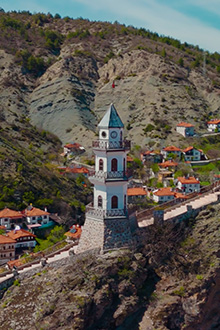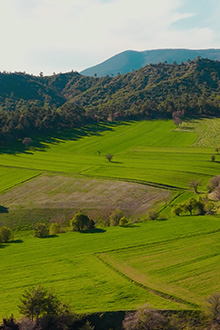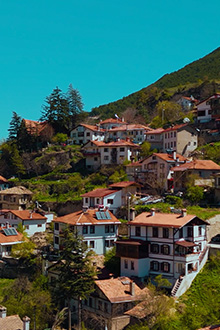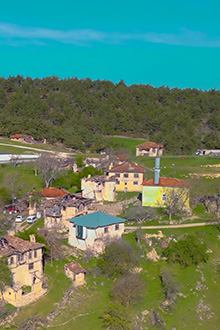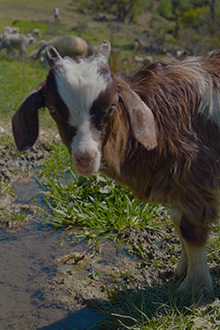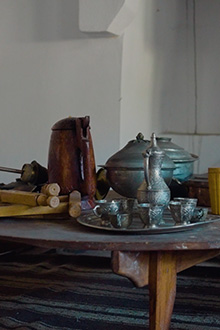

Göynük
A Mountain Village Where Time Stands Still
Hidden in the forested folds of Bolu’s highlands, Göynük is the kind of village that speaks softly yet leaves a lasting impression. Recognized as a member of the global Cittaslow network since 2017, Göynük welcomes travelers not with spectacle, but with stillness, authenticity, and layers of history waiting to be uncovered.
Wander its cobblestone streets and you will immediately notice the harmony between landscape and architecture. About 140 well-preserved Ottoman-era houses —whitewashed, wooden-framed, with red-tiled roofs— cling to the hillsides, creating scenes from a living museum. Built at the turn of the 20th century, these houses aren’t just relics. Many are still homes of families who have passed down the art of grounded living through generations.
Göynük’s character is deeply spiritual. It’s the resting place of Akşemsettin, the admired Sufi scholar and mentor of Sultan Mehmed the Conqueror, known in local tradition as the “spiritual conqueror of Istanbul.” His türbe (mausoleum), along with those of Ömer Sıkkinî and Debbağ Dede, draws pilgrims and history enthusiasts alike, placing Göynük firmly on Türkiye’s faith tourism map.
Positioned on the historic Silk Road, Göynük is also a member of the Historic Towns Union, and it shows. Nearly every turn offers a clue to its heritage: Ottoman fountains, clock towers, mosques, and traditional hamams (bathhouses) blend into the village’s gentle topography. These elements are protected under national heritage laws, ensuring Göynük remains as atmospheric tomorrow as it is today.
But Göynük doesn’t just live in the past. It celebrates the richness of its traditions through taste and craftsmanship. Long known as the “Back Garden of the Ottoman Palace,” the village was once a vital supplier to the imperial kitchens. Today, its culinary identity remains strong. Regional delicacies such as Bombay beans and sweets like dik börek (tiny filo rolls filled with walnuts), oklava tatlısı (a baklava-like syrupy dessert), uğut tatlısı (a marmalade based on wheat sprouts), and kabaklı yufka tatlısı (a sweet pastry with pumpkin) have all earned geographic indication status —proof that Göynük’s recipes are as rooted in place as its cobbled streets.
Locally grown ingredients and time-honored techniques remain central to the village’s food culture. Here, meals are slow-cooked and shared —often under the shade of a walnut tree or beside a bubbling stream. Don’t be surprised if you’re invited into a courtyard for tea and something sweet; hospitality is second nature here.
Göynük is also keeping its textile heritage alive. In 2020, the village earned distinction for the Göynük Tokalı Örtme, a traditional woven cloth that became Bolu Province’s first officially registered textile product. Small ateliers and workshops offer glimpses into these skills, kept vibrant through community pride and craftsmanship.
For travelers seeking a gentler rhythm and a more authentic way to experience Türkiye, Göynük offers more than a scenic stop. It offers a way of being: quiet, rooted, and deeply human.

